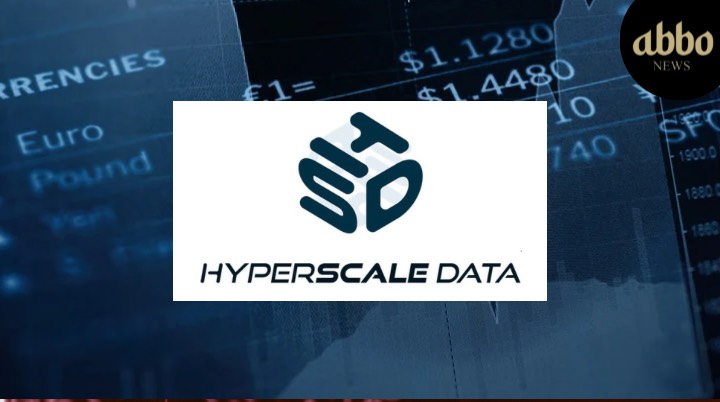Fintech companies are at the forefront of innovation, offering convenient and cutting-edge solutions to traditional banking and financial services.
PayPal (PYPL) and SoFi Technologies (SOFI) are the top contenders in this space, two companies that have garnered significant attention from investors.
PayPal is a well-established leader in the digital payments industry, widely known for its global presence and trusted payment solutions. On the other hand, SoFi, a relative newcomer, has been shaking up the fintech world with its comprehensive suite of personal finance services, ranging from loans to investments.
As both companies grow, investors face the challenge of deciding which fintech stock offers better long-term potential.
This blog will compare PYPL and SOFI based on financial performance, growth prospects, and market positioning to determine which stock could be the stronger investment choice.
Overview of PayPal (PYPL)
PayPal was formed in 2000 after a merger between Confinity and X.com. Its market capitalization is now around 6.095 trillion. PayPal Holdings, Inc. is a global digital payment platform that serves transactions for individuals and businesses.
PayPal invented the online payment sector to make money work more effectively. Today, it offers various financial services and products to businesses and individuals.
Key Products & Services
The products and services offered by PayPal can be categorized into two major categories:
- PayPal for Personal Use
- PayPal for Small Businesses and Enterprises
Recent Performance & Market Position
This year, PayPal’s stock has increased by more than 17%.
PayPal’s second-quarter financial release revealed a 9% growth in revenue on a currency-neutral basis and an 11% increase in total payment volume. Additionally, non-GAAP earnings per share increased significantly year over year by 36%. However, 2,500 jobs, or 9% of PayPal’s global staff, are anticipated to be eliminated due to uncertain economic conditions.
Analysts have offered different viewpoints regarding PayPal’s success and prospects going forward.
PayPal’s stock has increased significantly, up over 25% this quarter. Strong fundamental performance has partly contributed to this jump; since the second quarter, consensus earnings per share expectations for 2025 have improved by 5%.
However, the company points out that an increase in PayPal’s trading multiples has been the primary driver of the stock’s gain.
Overview of SoFi Technologies (SOFI)
SoFi Technologies, Inc. offers various financial services in the US, Canada, and Latin America. The company is divided into three segments: Financial Services, Technology Platforms, and Lending. The organization provides lending, financial services, and products that enable its members to borrow, invest, save, spend, and safeguard their funds.
It offers personal loans, student loans, housing loans, and related services.
Key Products & Services
SoFi provides a comprehensive financial ecosystem aimed at personal finance and wealth management. Key offerings include:
- SoFi Invest
- SoFi Money
- SoFi Loans
- SoFi Credit Card
- SoFi Relay
Recent Performance & Market Position
The company saw a robust 20% revenue growth over the previous year. However, earnings have been extraordinary. SoFi’s most recent net income was $17.4 million, compared to a net loss of $47.5 million the previous year. SoFi can increase its net profit margins from the existing 3%. The business has now turned a profit for three straight quarters.
The corporation may soon announce net profit margins in the double digits. Growing profits will increase SoFi’s price appeal, particularly for investors looking ahead to 2025. SoFi is trading at a significantly lower multiple of 32 times future earnings expectations compared to prior years.
In the upcoming sections, we will discuss the growth potential of both stocks in the upcoming months.
Growth Potential: PayPal vs. SoFi stock
As for the future, analysts project revenue growth in Q3 of mid-single digits, while adjusted earnings per share is anticipated to increase in the high single digits. Compared to its previous estimate of a mid-to-high single-digit growth, PYPL has revised its adjusted earnings projection for FY24 to rise in the low to mid-teens per share.
It is anticipated that SoFi will firmly establish its fintech position, especially with its growing clientele and banking charter. By the end of 2024, many experts believe the company’s stock price will be between $12 and $14 per share, with revenue growth expected to continue at an annual pace of 20–30%.
This forecast assumes that SoFi will become profitable, and analysts anticipate a significant increase in EBITDA.
Which Stock is the Better Investment?
In the quest for PYPL vs. SOFI stock, PayPal continues to grow at good rates, which has held steady despite the stock’s decline. Although the analysts were cautious about its revival, the second quarter saw a revenue rise of 9% year over year and an 11% increase in total payment volume (TPV). In the previous year, it processed $1.6 trillion in TPV.
With 429 million active users, PayPal’s transaction rates are still rising steadily. It also enjoys favorable breezes from the expanding $6 trillion e-commerce business, which may benefit from lower lending rates this week.
The most recent net income generated by SoFi was $17.4 million. A net loss of $47.5 million was experienced the previous year.
The corporation may soon announce net profit margins in the double digits. The profits are anticipated to increase because of the appeal of SoFi’s price, particularly for investors waiting for 2025.
Although SoFi is growing much faster than PayPal, investors must also consider other factors before making a decision.
Final Thoughts
Both PayPal and SoFi present compelling cases as fintech investments, but they cater to different investor profiles. PayPal offers stability and steady growth as a leader in digital payments, making it an ideal pick for conservative investors. In contrast, SoFi represents a high-risk, high-reward opportunity with significant potential for long-term gains as it builds out its comprehensive financial ecosystem. Ultimately, the choice between PYPL and SOFI depends on your investment strategy—whether you prioritize immediate stability or future growth potential
To stay updated and make better investments and financial decisions, stay tuned to ABBO News.
Peter Williams, a financial writer with over five years of experience, specializes in covering stock market movements, bond markets, commodities, and macroeconomic trends. Read Full Bio












